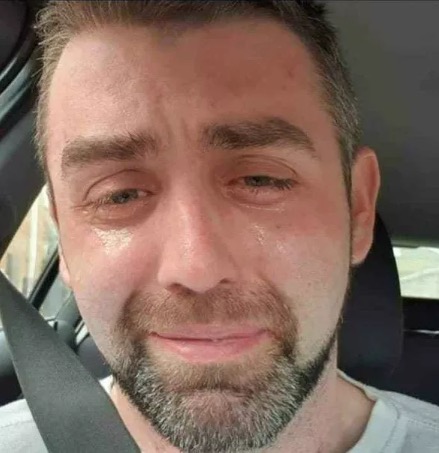Being a dad means protecting, providing, and giving your children a sense of safety. But what happens when the system you rely on fails?
Phillip Herron’s story isn’t just shocking — it is a painful warning of what happens when a struggling parent is left alone with debt, anxiety, and silence from those who were supposed to help.
A source of pain
Phillip Herron, a factory worker and devoted single father of three from Durham, England, had only $6 in his bank account when he decided to end his life in 2019. He was just 34 years old. The reason — the weeks-long wait for his first Universal Credit payment — a delay that proved too long, too cruel, and ultimately fatal.
Universal Credit is a British welfare scheme designed to replace six older benefits with a single monthly payment, intended to simplify the system and encourage employment. But for many, it has become a source of hardship.
Like so many others in crisis, Phillip quietly applied for Universal Credit, never telling his family about the depth of his struggles. He was unemployed, barely managing to feed and clothe his children, falling behind on rent, and drowning in nearly $25,000 of debt — including payday loans with outrageous interest rates of over 1,000%.
“The breaking point”
Like countless others, he turned to the system — but what he got was silence, delays, and growing debt. Universal Credit, introduced in 2013, requires new claimants to wait at least five weeks before receiving their first payment. For people already in crisis, that wait can be deadly.
“When people ask for help, they’re already desperate,” Phillip’s mother, Sheena Derbyshire, said. “Making them wait this long? It’s dangerous.” For Phillip, the pressure and waiting became unbearable. “There’s no reason it should take so long. Phillip already had problems, but I believe this was the breaking point,” Sheena added.
A shock to the family
Just hours before his death, Phillip posted a tearful selfie from inside his car along with a goodbye note. The next day, on a quiet rural road, he took his life. His mother was devastated: “It was a total shock,” she told the Daily Mirror. “We didn’t know how bad things were. In his note, he wrote that the family would be better off without him. Those words broke me.”
After his death, Sheena uncovered the full truth: Phillip was buried in debt to banks and utility companies; his home was on the verge of repossession; and an eviction notice was hidden in his paperwork. She found voice messages that were particularly painful. “Listening to them,” she said, “was the most heartbreaking thing I’ve ever done.”
His children were shattered too. “The youngest still dreams of him,” Sheena said softly. “She told him not to go. But when she woke up, he was gone.” According to Sheena, none of the children received therapy.
The public outcry was fierce. Social media exploded with grief and anger, directing accusations at the Department for Work and Pensions (DWP). One post read: “Now another dead on your blood-stained hands.” Another said: “You should hang your head in shame.”
Why she speaks out
Sheena believes that speaking about her son’s suicide and the devastating impact on their family might help others who are silently struggling. “You don’t just wake up one day and take your own life. There’s a build-up. So please, please talk to someone. Don’t let another family go through this. If you can’t talk to family, there are people like Samaritans,” she said.
In 2019, Sheena hoped the evidence she uncovered would lead to a full inquest into Phillip’s death in Sacriston, Co. Durham, and expose the flaws of Universal Credit. But it remains unclear whether she received justice.
In response, the Department for Work and Pensions issued a statement: “Our thoughts are with Mr. Herron’s family. Suicide is a very complex issue, so it would be wrong to link it solely to someone’s benefit claim. We are committed to safeguarding vulnerable claimants and keep guidance under constant review to provide the highest standard of protection.”
Not an isolated case
Tragically, Phillip’s story is not unique. According to reports like WSWS.org, deaths linked to the UK’s Universal Credit system are not rare. In 2019, Stephen Smith, a chronically ill man weighing just 84 pounds, was declared “fit to work” and died shortly after. That same year, 81-year-old retiree Joy Worrall ended her life after her pension was frozen, leaving her with just $6. And 60-year-old Martin John Counter died by suicide after being wrongly accused of benefit fraud.
Phillip’s final months paint the portrait of a man doing everything he could to hold on — for his children, for his life, for his sanity. Sadly, he felt ignored by the bureaucracy, and it became fatal. Finally, his devastated mother makes a plea: “If this doesn’t change,” she said, “he won’t be the last.”
